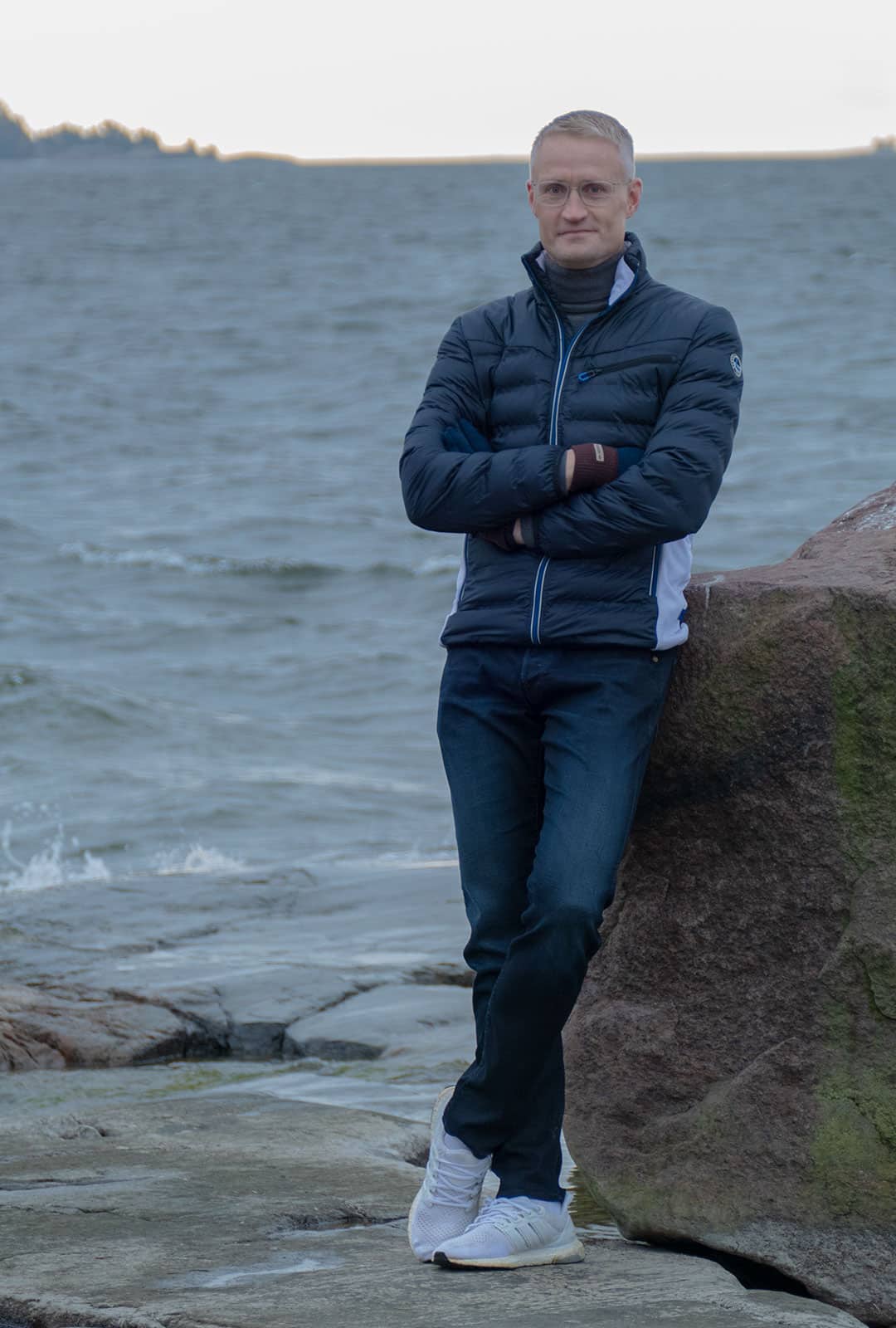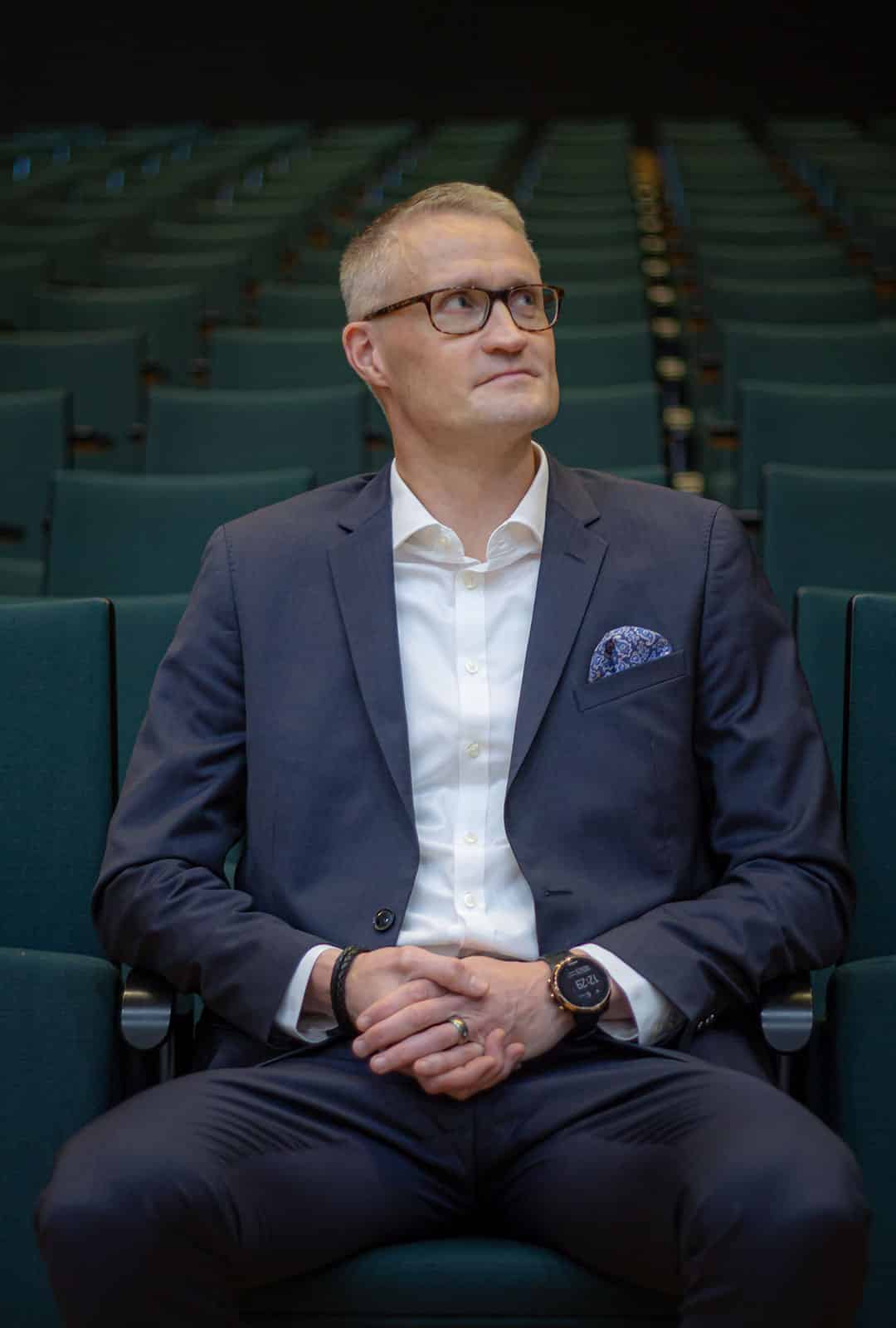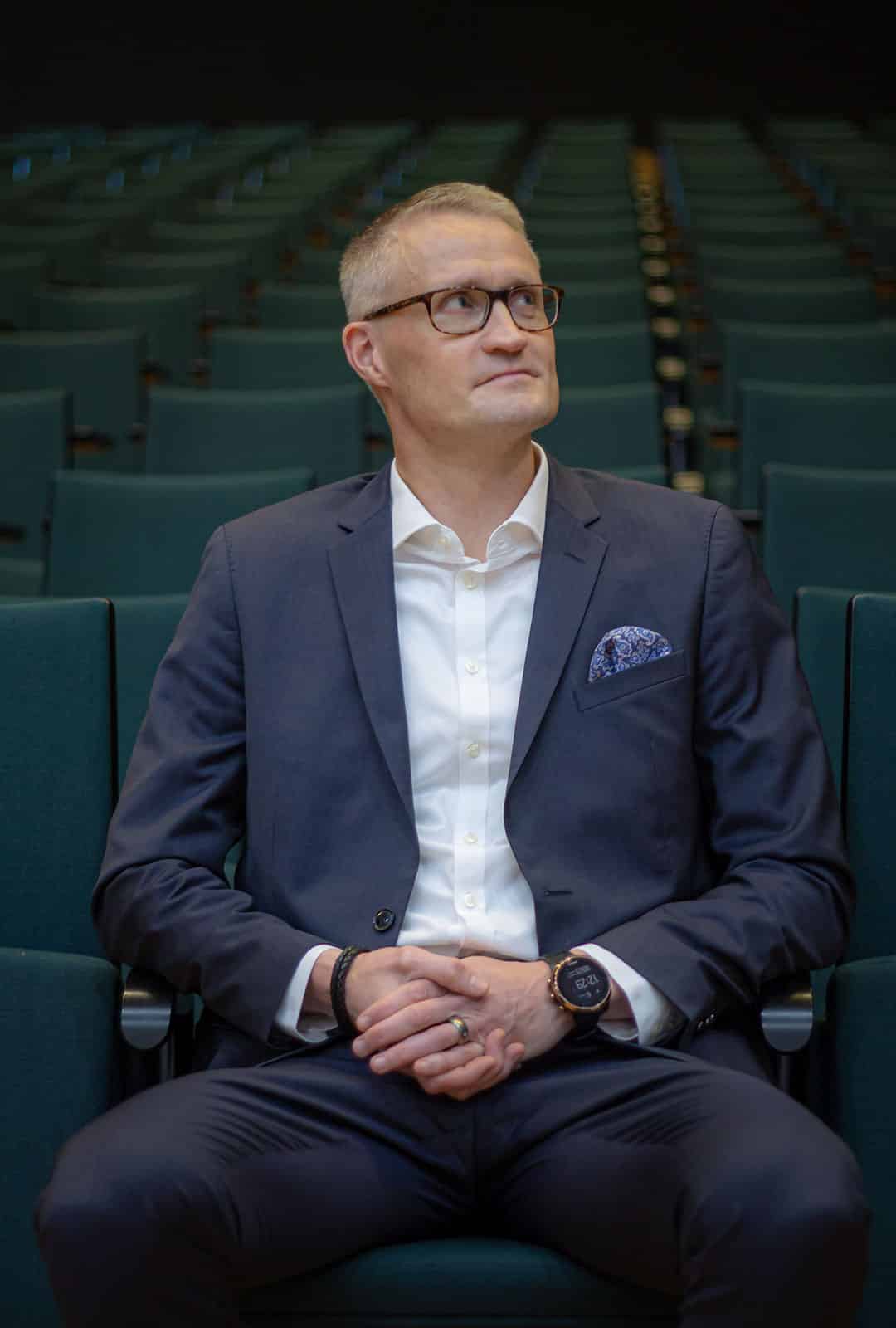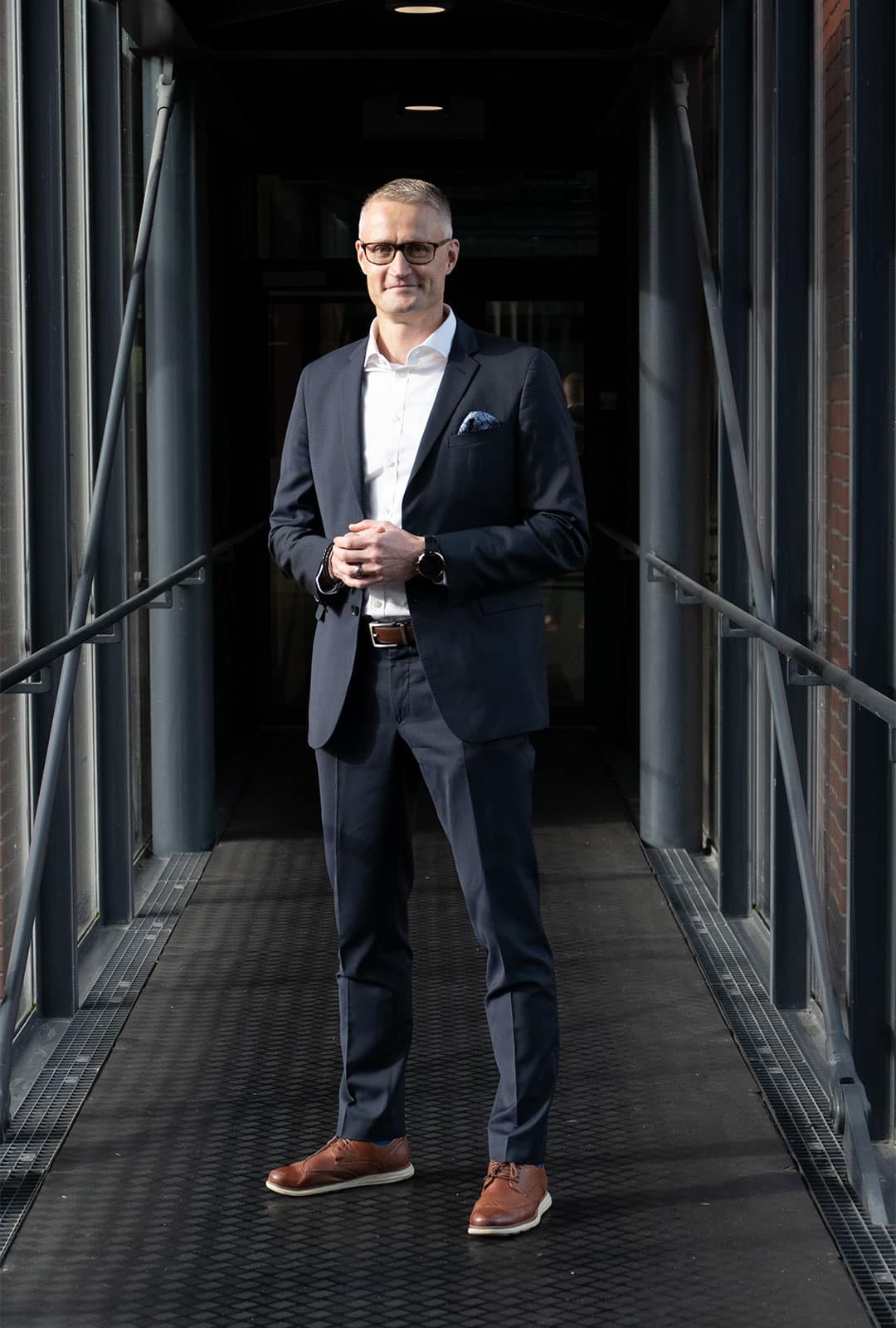When one hears the word security politics one often thinks of hard security as in the police, the defence forces and the border guard. But if you think about it, the everyday safety and security is built on mundane, literally everyday things. Therefore all politics, in the end, are politics about safety and security.
The concept of security and what it covers has changed. When talking about security news during the year many think of the Russia’s war in Ukraine. Yet the biggest news for the past two years, the coronavirus, is a question of security to the greatest extent. The corona crisis is also a health crisis, a social crisis and an economical crisis. Health is a question of safety and wellbeing in the same way as the social difficulties in many families, and so are the economic troubles that threaten jobs and eventually even the stability of the society.
It is describing that in the Finnish language the words safety and security are one and the same: turvallisuus. If we add wellbeing to safety and security, we are quite close to the areas that the Finnish word kokonaisturvallisuus, “overall security”, covers.
Safety and security have become entangled in all areas of life in the modern world. My prediction is that overall safety, overall security and overall well being, kokonaisturvallisuus, will finally be better understood during the decade of 2020.
Even more influential than an infectious disease or a traditional war could be an attackbased on technology or exploiting it can be a lot more influential. An information pandemic doesn’t attack lungs but hearts and minds instead. Taking down our means of communication would have a much bigger impact on our everyday life than being forced to use food home delivery and spending all our free time on monthly online subscriptions.
It is hard to imagine a situation where for example electricity supply, payment transactions or drinking water wouldn’t be available. But very few of us could imagine a worldwide health catastrophe just over a year ago. And right now there is a war waging in Europe, the most damaging war since the second world war. At the same time FInland is on it’s way to Nato. A lot has changed in a short period of time.
None of us knows for sure what safety and security issues will be actual tomorrow or in ten years. Therefore it is essential that we don’t get stuck to old ways of thinking and perceive overall safety from too few points of view. The threats of the future must be prepared for already today.

All politics are security politics
When one hears the word security politics one often thinks of hard security as in the police, the defence forces and the border guard. But if you think about it, the everyday safety and security is built on mundane, literally everyday things. Therefore all politics, in the end, are politics about safety and security.
The concept of security and what it covers has changed. When talking about security news during the year many think of the Russia’s war in Ukraine. Yet the biggest news for the past two years, the coronavirus, is a question of security to the greatest extent. The corona crisis is also a health crisis, a social crisis and an economical crisis. Health is a question of safety and wellbeing in the same way as the social difficulties in many families, and so are the economic troubles that threaten jobs and eventually even the stability of the society.
It is describing that in the Finnish language the words safety and security are one and the same: turvallisuus. If we add wellbeing to safety and security, we are quite close to the areas that the Finnish word kokonaisturvallisuus, “overall security”, covers.
Safety and security have become entangled in all areas of life in the modern world. My prediction is that overall safety, overall security and overall well being, kokonaisturvallisuus, will finally be better understood during the decade of 2020.
Even more influential than an infectious disease or a traditional war could be an attackbased on technology or exploiting it can be a lot more influential. An information pandemic doesn’t attack lungs but hearts and minds instead. Taking down our means of communication would have a much bigger impact on our everyday life than being forced to use food home delivery and spending all our free time on monthly online subscriptions.
It is hard to imagine a situation where for example electricity supply, payment transactions or drinking water wouldn’t be available. But very few of us could imagine a worldwide health catastrophe just over a year ago. And right now there is a war waging in Europe, the most damaging war since the second world war. At the same time FInland is on it’s way to Nato. A lot has changed in a short period of time.
None of us knows for sure what safety and security issues will be actual tomorrow or in ten years. Therefore it is essential that we don’t get stuck to old ways of thinking and perceive overall safety from too few points of view. The threats of the future must be prepared for already today.

Technology
Things are better than we even remember them to be. For example infant mortality hasn’t risen in any country. The life expectancy keeps going up in the whole world while new vaccines help to fight against diseases that previously were considered fatal. The amount of people in extreme poverty keeps going down and the amount of free time keeps going up. We are on our way towards a better future, owing to technological innovations. Without technology there would be no rise in the standard of living.
We tend to overestimate the impact of technological evolution in the short term and underestimate them in the long run. This causes the public debate to be on sidings most of the time. During the past few years for example in Finland the discussion has been about how many cars there should be on the roads and who’s allowed to drive a taxi. These questions are mildly put inessential taking into consideration that the cars of the future will be nearly emission-free and will not be driven by a human being at all.
In the big picture the question is technological evolution and the future of the humankind. We are on our way to a better future, but it doesn’t happen by itself. It is not a law of nature that technological evolution is a guarantee of improvement. Technology is a tool that does what a human decides it to do. In good and bad.
I am a member of the World Economic Forum’s expert network. There we discuss sustainable solutions to solve the future needs of for example industry, economy, energy production, health care, artificial intelligence and digitization. I am confident that humankind is on it’s way to a more effective yet more sustainable way to utilize technology.
To make sure that technological evolution will improve the standard of our living in the future too we have to invest in education, research and development. We need more highly educated people and more high-skilled jobs to keep providing the technological evolution means to prosper in Finland. We also need to make sure that ordinary citizens – the end users of the innovations – have the basic everyday digital skills to make use of the digitized services.
The world changes for the better by means of better technology. Let’s take care of that Finland will continue to produce and utilize new technology to benefit Finland and the whole world.


Technology
Things are better than we even remember them to be. For example infant mortality hasn’t risen in any country. The life expectancy keeps going up in the whole world while new vaccines help to fight against diseases that previously were considered fatal. The amount of people in extreme poverty keeps going down and the amount of free time keeps going up. We are on our way towards a better future, owing to technological innovations. Without technology there would be no rise in the standard of living.
We tend to overestimate the impact of technological evolution in the short term and underestimate them in the long run. This causes the public debate to be on sidings most of the time. During the past few years for example in Finland the discussion has been about how many cars there should be on the roads and who’s allowed to drive a taxi. These questions are mildly put inessential taking into consideration that the cars of the future will be nearly emission-free and will not be driven by a human being at all.
In the big picture the question is technological evolution and the future of the humankind. We are on our way to a better future, but it doesn’t happen by itself. It is not a law of nature that technological evolution is a guarantee of improvement. Technology is a tool that does what a human decides it to do. In good and bad.
I am a member of the World Economic Forum’s expert network. There we discuss sustainable solutions to solve the future needs of for example industry, economy, energy production, health care, artificial intelligence and digitization. I am confident that humankind is on it’s way to a more effective yet more sustainable way to utilize technology.
To make sure that technological evolution will improve the standard of our living in the future too we have to invest in education, research and development. We need more highly educated people and more high-skilled jobs to keep providing the technological evolution means to prosper in Finland. We also need to make sure that ordinary citizens – the end users of the innovations – have the basic everyday digital skills to make use of the digitized services.
The world changes for the better by means of better technology. Let’s take care of that Finland will continue to produce and utilize new technology to benefit Finland and the whole world.
Education is the basis of good life
My favourite quote is the timeless wisdom of J. V. Snellman: “The shelter of a small nation lies is civilization.” Education has made the Finnish society what it is today: a Nordic success story. The whole idea of a welfare society is based on the opportunity for high class education for everyone regardless of their background.
Education is an absolute value not to be bargained for. If counting numbers of people are left aside from the public discussion and participation in society, the polarization to those who do well and those who don’t will be inevitable. Education is the key to social participation. And how much we invest in education is a political decision.
Education can be understood in several ways. One can for example be wise at heart, specialized, full of wisdom, intuition based on life experience or book wisdom. The nature of education is not as important as the feeling of meaning and being participated. The feeling of being able to influence one’s life and it’s surroundings.
Being socially participated is one of the basic elements of a meaningful life. In the big picture it’s also about social peace, stable society and the realization of democracy. It is difficult to influence in peaceful ways if one doesn’t know the history or the functioning of the society. Therefore educated people are the lifeblood of democracy.
Unproductive arguing and identity politics too often take over the public discussion in the world of black and white truths and short attention span. Intentional misunderstanding and undue harassment are used to silence those who disagree. How much skin on your nose does it take to run for politics in the future? Which matters are discussed? Which are not? These are highly relevant questions.
Education and civilization are keys to better life and better society. Without these tools an individual will get lost on one’s way, a society will become troubled and humankind will regress. We can raise our standard of living and lift others up with us only if we invest in education. As civilized people, this is our duty towards fellow human beings and the coming generations.

Education is the basis of good life
My favourite quote is the timeless wisdom of J. V. Snellman: “The shelter of a small nation lies is civilization.” Education has made the Finnish society what it is today: a Nordic success story. The whole idea of a welfare society is based on the opportunity for high class education for everyone regardless of their background.
Education is an absolute value not to be bargained for. If counting numbers of people are left aside from the public discussion and participation in society, the polarization to those who do well and those who don’t will be inevitable. Education is the key to social participation. And how much we invest in education is a political decision.
Education can be understood in several ways. One can for example be wise at heart, specialized, full of wisdom, intuition based on life experience or book wisdom. The nature of education is not as important as the feeling of meaning and being participated. The feeling of being able to influence one’s life and it’s surroundings.
Being socially participated is one of the basic elements of a meaningful life. In the big picture it’s also about social peace, stable society and the realization of democracy. It is difficult to influence in peaceful ways if one doesn’t know the history or the functioning of the society. Therefore educated people are the lifeblood of democracy.
Unproductive arguing and identity politics too often take over the public discussion in the world of black and white truths and short attention span. Intentional misunderstanding and undue harassment are used to silence those who disagree. How much skin on your nose does it take to run for politics in the future? Which matters are discussed? Which are not? These are highly relevant questions.
Education and civilization are keys to better life and better society. Without these tools an individual will get lost on one’s way, a society will become troubled and humankind will regress. We can raise our standard of living and lift others up with us only if we invest in education. As civilized people, this is our duty towards fellow human beings and the coming generations.

JOIN THE CAMPAIGN
You can support my campaign in many ways. I am eager to hear your point of view on what kind of politics is needed right now. You can also help me in campaigning in practise or via donating funds.
